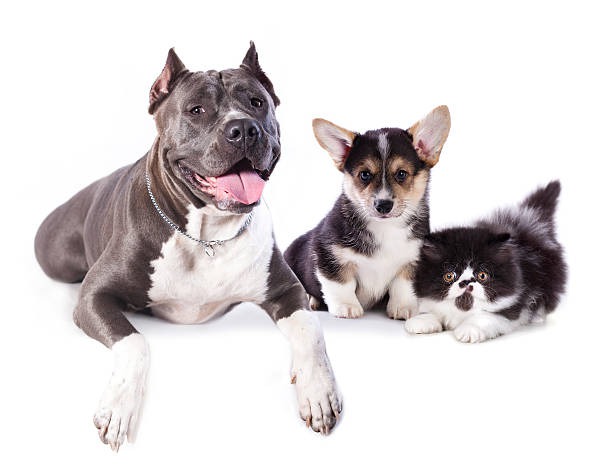As pet owners, one of our biggest joys is watching our beloved animals grow and thrive under our care. However, just like humans, our pets inevitably age. Recognizing when your pet has entered its senior years is crucial for providing the best care and enhancing its quality of life during this critical stage. But at what age is a pet generally regarded as a senior? This question varies by species, breed, and individual health.
Defining ‘Senior’ in Pets
The age at which a pet is considered ‘senior’ can vary significantly. Dogs and cats are commonly thought to step into their golden years around 7. However, the size and breed of your dog can also play a significant role. For instance, larger dogs might be considered seniors at age 5 or 6, whereas smaller breeds might only reach senior status later in life. Conversely, cats tend to have a more uniform age range, often defined as seniors around 10 to 12 years.
Different Pets, Different Timelines
Dogs and cats are the most common pets, but remember the variety of animals that might be part of your family. Each type has its own expected lifespan and, consequently, its senior milestones:
-
Rabbits: Generally considered senior at 5 to 6 years
-
Birds: Depending on the species, some birds reach senior status once they are 20 or older.
-
Guinea Pigs: Typically become seniors around four years old
-
Horses: They often are considered aged once they reach their late teens
Signs of Ageing in Pets
Understanding when your pet becomes a senior is one thing, but recognizing the signs of aging is also vital. As animals grow older, they may show various changes, both physically and in behavior, which can include:
-
Decreased mobility or signs of arthritis
-
Changes in weight, either gain or loss
-
Different sleeping patterns, often sleeping more
-
Reduced sense of hearing, sight, or smell
-
Changes in behavior, such as increased irritability
Addressing the Health Needs of Senior Pets
As pets age, their health needs evolve. Now more than ever, regular check-ups with a qualified geriatric vet become essential. A vet specializing in senior care can help manage and prevent chronic conditions, ensuring your pet’s comfort and health are maintained.
Senior Pet Diet
Dietary needs also change as pets age. Senior pets typically require diets with different caloric intake than their younger selves, with higher fiber and adjusted levels of specific nutrients like protein and fat. Thoughtfully chosen food can significantly impact the well-being and vitality of an aging pet.
Critical Nutrients for Senior Pets:
-
Fatty Acids such as Omega 3 and 6
-
Adapted levels of easily digestible proteins
-
Lower calorie intake to prevent obesity
-
Increased fiber for gastrointestinal health
Maintaining an Active Lifestyle During Senior Years
Keeping your senior pet active is vital for their physical and mental well-being. Adapt exercise routines to their comfort level—shorter walks for a dog with arthritis or gentle play sessions for an elderly cat can make a significant difference.
Regular Vet Appointments
Regular visits to the veterinarian are integral to monitoring and maintaining a senior pet’s health. This includes regular screenings for common age-related diseases, vaccination updates, and dental care. For intricate health issues, such as those involving organ systems, the help of a vet internal medicine specialist might be necessary.
Preventive Care Is Vital
Preventive care becomes increasingly important as pets age. Elements such as dental hygiene, parasite control, and vaccines need careful attention to prevent the onset of common diseases that could severely affect a pet’s health at a senior age.
Adjusting Your Home for an Aging Pet
Making some adjustments at home can help ensure that your senior pet remains comfortable and safe. Consider adding ramps for pets with trouble jumping or climbing stairs, use non-slip mats to prevent falls, and ensure their bed or sleeping area is easily accessible and supportive.
Emotional and Cognitive Health
Last but never least, a senior pet’s emotional and cognitive health should be noticed. Increased interaction and mental stimulation (like new, gentle games or puzzle feeders) can help keep their minds sharp. Be observant of any disorientation or confusion, which could indicate more serious issues such as dementia.
When Specific Care Is Needed
Sometimes, despite all our efforts, specialized care or procedures might become necessary. For example, when looking for veterinary surgery in Modesto, CA, choosing a facility with experience and a reputation for handling senior pets with extra care and attention to their specific needs is essential.
Final Thoughts
Our pets give us unconditional love, joy, and companionship throughout their lives. As they enter their senior years, it becomes our privilege and responsibility to reciprocate by ensuring their comfort and well-being. Identifying when they become seniors and adjusting your care to meet their aging needs can help provide them with a happy, healthy, and fulfilling final chapter.


